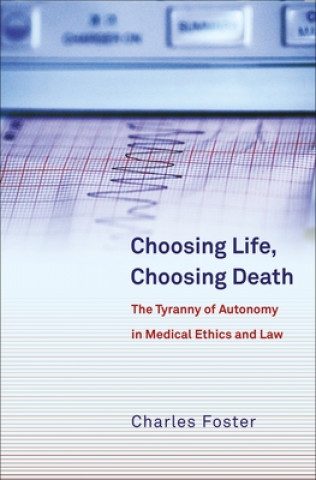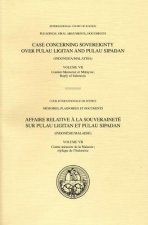
Consegna
Guida all'acquisto





Non ti piace? Non importa! Puoi restituircelo entro 30 giorni
 Buono sconto
Di qualsiasi valore
Buono sconto
Di qualsiasi valore
Non puoi sbagliarti con un buono regalo. Con il buono regalo, il destinatario può scegliere qualsiasi prodotto della nostra offerta.
Choosing Life, Choosing Death
 Inglese
Inglese
 182 b
182 b
30 giorni per il reso
Potrebbe interessarti anche


Autonomy is a vital principle in medical law and ethics. It occupies a prominent place in all medico-legal and ethical debate. But there is a dangerous presumption that it should have the only vote, or at least the casting vote. This book is an assault on that presumption, and an audit of autonomy's extraordinary status. This book surveys the main issues in medical law, noting in relation to each issue the power wielded by autonomy, asking whether that power can be justified, and suggesting how other principles can and should contribute to the law. It concludes that autonomy's status cannot be intellectually or ethically justified, and that positive discrimination in favour of the other balancing principles is urgently needed in order to avoid some sinister results. 'This book is a sustained attack on the hegemony of the idea of autonomy in medical ethics and law. Charles Foster is no respecter of authority, whether of university professors or of law Lords. He grabs his readers by their lapels and shakes sense into them through a combination of no-nonsense rhetoric and subtle argument that is difficult to resist.' Tony Hope, Professor of Medical Ethics, Oxford University 'This book is unlikely to be in pristine state by the time you have finished reading it. Whether that is because you have thrown it in the air in celebration or thrown it across the room in frustration will depend on your perspective. But this book cannot leave you cold. It is a powerful polemic on the dominance of autonomy in medical law, which demands a reaction. Charles Foster sets out a powerful case that academic medical lawyers have elevated autonomy to a status it does not deserve in either ethical or legal terms. In a highly engaging, accessible account, he challenges many of the views which have become orthodox within the academic community. This will be a book which demands and will attract considerable debate.' Jonathan Herring, Exeter College, Oxford University 'This is a learned, lively and thought-provoking discussion of problems central to the courts' approach to ethical issues in medical law. What principles are involved? More significantly, which really underlie and inform the process of seeking justice in difficult cases? Charles Foster persuasively argues, and demonstrates, that respect for autonomy is but one of a number of ethical principles which interact and may conflict. He also addresses the sensitive issue of the extent to which thoughts and factors which go to influence legal decisions may not appear in the judgments.' Adrian Whitfield QC. 'Introducing the Jake La Motta of medical ethics. Foster is an academic street-fighter who has bloodied his hands in the court room. He provides a stinging, relentless, ground attack on the Goliath of medical ethics: the central place of autonomy in liberal medical ethics. This is now the first port of call for those who feel that medical ethics has become autonomized.' Julian Savulescu, Uehiro Chair in Practical Ethics, University of Oxford. "This important book offers a robust challenge to anyone, whether lawyer or 'ethicist', who sees respect for autonomy as the only game in town. It argues eloquently and effectively that, on the one hand, despite the reverence paid to it by judges, in practice the law, even in the context of consent, weaves together a number of moral threads of which autonomy is merely one, in the pursuit of a good decision. It argues on the other hand, that were the day-to-day practice of law to be guided primarily by respect for autonomy, this would be wrong. Foster concludes that whilst, 'any society that does not have laws robustly protecting autonomy is an unsafe and unhappy one', so too would be a society in which too much emphasis was placed on respect for autonomy at the expense of other important moral principles. This is essential reading for anyone interested in the role of autonomy and indeed of medical ethics, in the law." Michael Parker, Professor of Bioethics, University of Oxford
Informazioni sul libro
 Inglese
Inglese


 Contatto
Contatto Come acquistare
Come acquistare



























